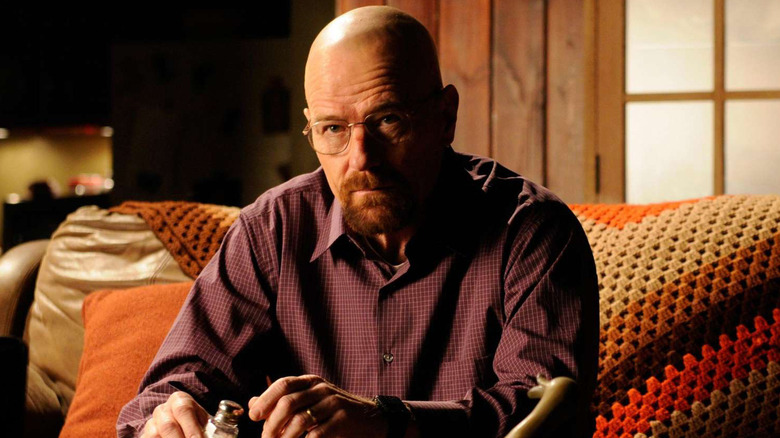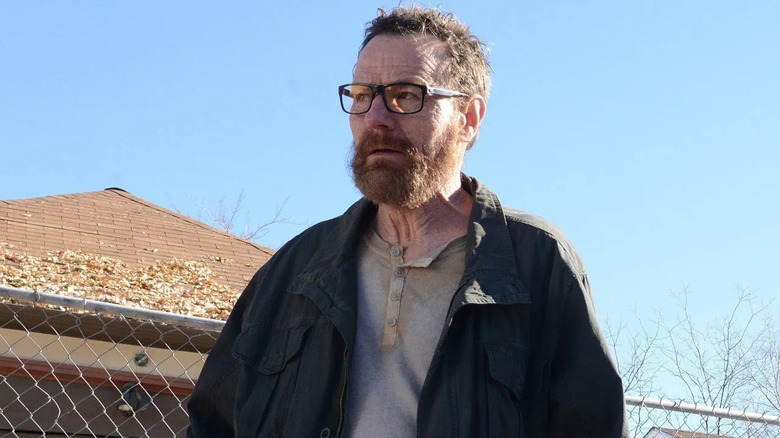Why Breaking Bad Would Make A Terrible Movie, According To Bryan Cranston
"El Camino: A Breaking Bad Movie," the sequel/epilogue to Vince Gilligan's revolutionary masterpiece "Breaking Bad," was a good film because it felt like a double-episode in the same show. That's because we all knew what came before it. It was an extra, missing piece to the 62 episodes that made us obsessed with Walter White (Bryan Cranston), Jesse Pinkman (Aaron Paul), and their family and business associates. Think of it as a short story added to an elaborate and extensive novel.
That's just the thing: The best TV shows that run for years work because they feel like novels told on the screen. We immerse ourselves and get lost in them, always eager to return to a world we love and are fascinated by, populated with characters we can never get enough of. Most movies can't (and won't) trigger the same feeling because they don't have the time — although the increase of film runtimes in recent years certainly gives storytellers more room to work with, especially when it comes to character development.
"Breaking Bad" was always destined to be a TV show, and Gilligan used every tool at his disposal that the medium provided to craft absorbing character studies that reveled in the smallest details. No bottle episode or cold open felt the same after it. That's mostly because Gilligan had the time to nail those the way he wanted to — and nobody agrees more with that than Cranston.
The darkly rich soul of Breaking Bad would've been lost if it were a movie
The best programs that came before "Breaking Bad" — "The Sopranos," "The Wire," "Six Feet Under," etc. — all showed what was possible on the small screen, and Gilligan's series was a culmination of that. It was the right concept for the right medium, and even if you could get the greatest filmmaker and screenwriter to make a movie out of it, it just wouldn't be the same on any level. You just couldn't leave out all the pivotal nuances that made "Breaking Bad" exceptional and still get the same astonishing impact the series had. Not that anyone would want to (and I hope that will never change), but I'm bringing this up because the show's biggest star, Cranston, summed this up perfectly in a 2018 oral history published in The Ringer about what most consider the greatest episode of "Breaking Bad" ever ("Ozymandias"). As he put it:
"It's just such gripping drama. What's more important is that it comes at the right time. I always say that 'Breaking Bad' was the perfect television show because it would've made a terrible movie, right? You'd have to compress and truncate and skip over and extract a tremendous amount of material, of growth and development, and the downward spiral of this man, and the disintegration of his soul. All that would've been lost, because you've gotta get on with it."
In most films and TV shows, timing the most vital and jaw-dropping moments right is everything. "Breaking Bad" is one of those series where practically all of them were delivered flawlessly. Agreeing with Cranston, I believe that wouldn't have been possible in a movie, terrible or not.

